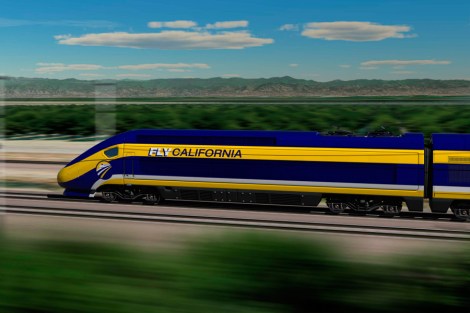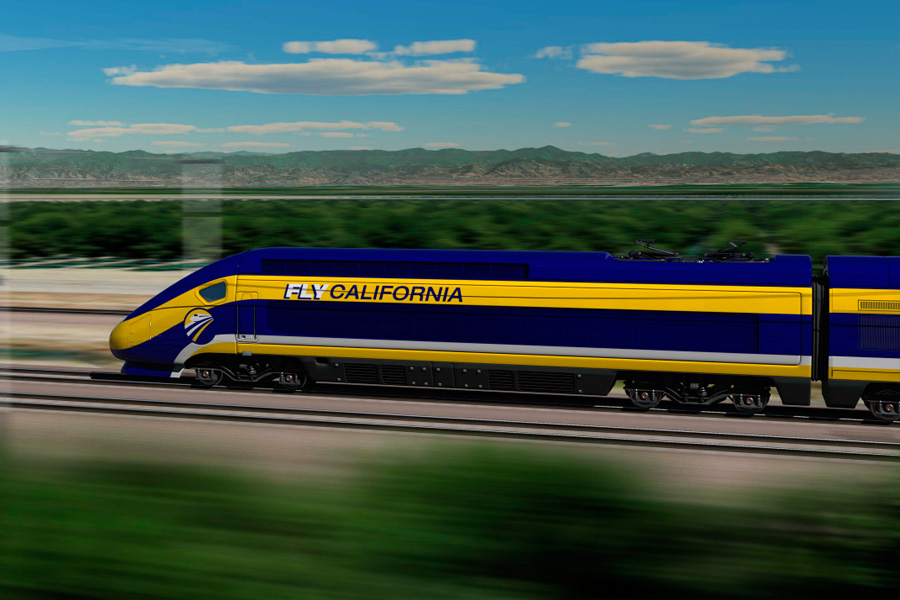The Golden State is set to begin construction on its much-vaunted (and much-moneyed) high-speed rail project this summer, a line that would run from Southern California to the San Francisco Bay Area. Amtrak is on board and the Department of Transportation is pumped, but despite having less than six months to go until they break ground, California hasn’t bought the land where the train is supposed to go yet. Like, none of it, not “a single acre.” Oops.

California High Speed Rail Authority
The Los Angeles Times reports:
The complexity of getting federal, state and local regulatory approvals for the massive $68-billion project has already pushed back the start of construction to July from late last year. Even with that additional time, however, the state is facing a risk of not having the property to start major construction work near Fresno as now planned.
It hopes to begin making purchase offers for land in the next several weeks. But that’s only the first step in a convoluted legal process that will give farmers, businesses and homeowners leverage to delay the project by weeks, if not months, and drive up sales prices, legal experts say.
If the first 130 miles of rail aren’t completed by 2018, at a spendy rate of $3.6 million each day, the project stands to lose federal funding.
One major roadblock will be Central Valley farmland that has been skyrocketing in value due to a booming global tree-nut market. The longer California drags its feet, the more expensive those farms, and in turn that train, will turn out to be. The first stretch of the project is only 29 miles, but involves the purchase of about 400 different parcels, many of them fancy farmland that owners are reluctant to part with.
Anja Raudabaugh, executive director of the Madera County Farm Bureau, which is suing to halt the project under the California Environmental Quality Act, said the rail authority will face strong opposition to condemnation proceedings in the Central Valley. The bureau has hired a condemnation expert to help battle the land seizures.
“It is a harried mess,” she said.
She noted that agricultural land prices rose rapidly last year across the nation. In the Central Valley, the average price of farmland is $28,000 per acre, while the rail authority’s budget anticipates an average price of $8,000 per acre, she said.
Kole Upton, an almond farmer who leads the rail watchdog group Preserve Our Heritage, questioned the rail agency’s expertise in conducting complex appraisals of agricultural land that has orchards, irrigation systems and processing facilities.
“I am not sure this thing has been well thought out by people who have a deep understanding of agriculture,” Upton said.
This ride will be long, uncomfortable, bumpy, and expensive. Kind of like all American train rides, come to think of it.



